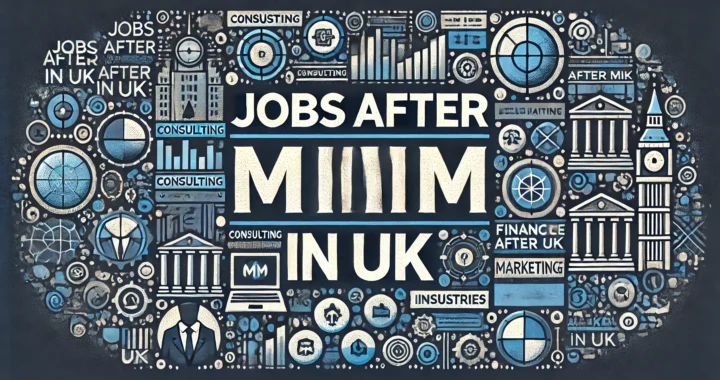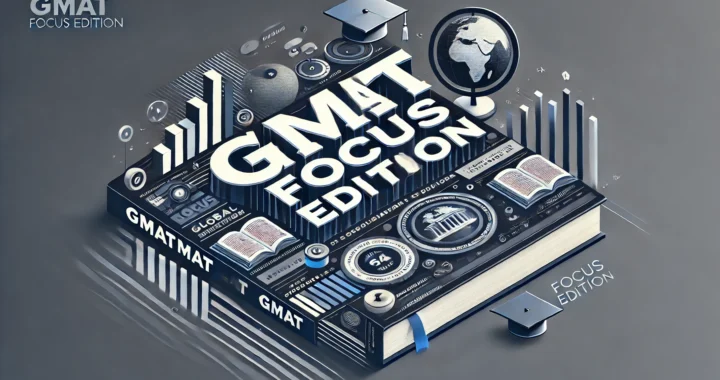The Dublin City University (DCU) Masters in Finance program has steadily gained a reputation as one of Ireland’s premier finance degrees. For Indian students aspiring to broaden their knowledge and career prospects in finance, DCU offers a comprehensive curriculum, industry connections, and an immersive international experience. This guide will take you through the essentials of the DCU Masters in Finance program—covering everything from admissions requirements and course structure to career prospects and living as an international student in Dublin.
Why Choose the DCU Masters in Finance Program?
DCU Masters in Finance can be a transformative experience, equipping students with skills in investment analysis, corporate finance, and financial risk management. The program is designed with a practical focus, providing students with not just theoretical knowledge but also real-world applications through case studies, industry projects, and internships. DCU also boasts an excellent global alumni network, which opens doors to numerous career opportunities across finance sectors worldwide.
Overview of the DCU Masters in Finance Program

About DCU Masters in Finance
The DCU Masters in Finance program is crafted for ambitious students aiming to excel in the finance industry. It’s a full-time, intensive one-year program, designed to build foundational and advanced knowledge in finance. The curriculum offers a blend of core finance principles, practical financial modeling, and exposure to emerging topics like sustainable finance and fintech. This ensures graduates are well-prepared to handle the complexities of modern financial markets.
What Sets DCU Apart?
DCU’s finance program combines a strong academic foundation with a practical approach to ensure students are job-ready. The university’s commitment to innovation and research in finance, particularly in areas such as digital finance and risk assessment, places it at the forefront of finance education in Ireland. Additionally, DCU’s partnerships with top financial institutions allow students to gain invaluable industry insights, networking opportunities, and practical experience.
Admission Requirements and Application Process for DCU Masters in Finance

For Indian students considering a Masters in Finance, understanding the application requirements and deadlines is essential for a smooth admission process. DCU Masters in Finance application process is straightforward but requires early planning due to the program’s competitive nature and limited spots available. Here’s a step-by-step guide:
| Criteria | Details |
|---|---|
| Educational Background | Bachelor’s degree, preferably in finance, business, or a related field. Non-business graduates with relevant experience may be considered. |
| Minimum GPA Requirement | Equivalent to a 2.1 honors degree in the UK system. |
| Supporting Documents | Transcripts, resume, Statement of Purpose (SOP), and letters of recommendation. |
| Language Proficiency | IELTS: 6.5 overall, no band below 6.0. TOEFL and PTE are also accepted (specific score requirements apply). |
| GMAT/GRE | Not mandatory for all applicants but recommended, especially for non-finance backgrounds. |
| Application Deadlines | Open in October; final deadline in spring. Early applications encouraged due to limited spots. Check the DCU website for specific yearly deadlines. |
Course Curriculum and Specializations
DCU Masters in Finance curriculum offers a balanced blend of theoretical knowledge and practical applications, preparing students for global finance roles. The program includes core modules, electives, and potential specializations in areas like corporate finance and risk management. This structured approach ensures students develop expertise in both traditional finance principles and emerging industry trends.
| Core Module | Description |
|---|---|
| Financial Theory and Markets | Covers fundamental concepts like asset pricing, market efficiency, and investment strategies. |
| Corporate Finance | Focuses on capital structure, valuation, and decision-making within corporate finance. |
| Investment Analysis | In-depth training on portfolio management, risk analysis, and security valuation. |
| Quantitative Finance | Equips students with statistical and quantitative tools for data analysis in finance. |
| Financial Econometrics | Teaches econometric methods and modeling techniques applied to financial data. |
| Specialization Option | Description |
|---|---|
| Corporate Finance | Deepens knowledge in capital structure management, mergers, and acquisitions. |
| Investment Banking | Focuses on financial markets, asset management, and investment strategies. |
| Financial Risk Management | Covers risk assessment, risk mitigation techniques, and financial regulation. |
| Sustainable Finance | Addresses finance principles in the context of environmental and social sustainability. |
| Fintech | Explores emerging finance technologies, digital currencies, and innovation in financial services. |
Career Opportunities After DCU Masters in Finance

The DCU Masters in Finance program is designed to make graduates highly employable in the global finance market. DCU alumni have successfully entered various finance sectors, including corporate finance, investment banking, risk management, and financial consulting. Here’s a breakdown of common career paths, potential roles, and salary expectations for graduates:
| Career Path | Typical Roles | Average Salary (EUR) |
|---|---|---|
| Corporate Finance | Financial Analyst, Financial Planner, Treasury Analyst | €40,000 – €55,000 |
| Investment Banking | Investment Analyst, Associate, Portfolio Manager | €50,000 – €80,000 |
| Financial Risk Management | Risk Analyst, Risk Manager, Compliance Officer | €45,000 – €70,000 |
| Financial Consulting | Financial Consultant, Business Analyst | €50,000 – €75,000 |
| Fintech | Data Analyst, Blockchain Specialist, Financial Data Scientist | €55,000 – €85,000 |
Please note: These figures are average estimates and can vary based on experience, specialization, and company location.
Top Employers and Alumni Success Stories
DCU maintains robust relationships with top-tier companies, particularly in Ireland and Europe. Graduates have joined organizations such as Deloitte, KPMG, HSBC, and JP Morgan, gaining prestigious roles in various financial sectors. DCU’s network also includes a strong alumni base working in major financial hubs like London, Frankfurt, and New York, which can be invaluable for mentorship and networking opportunities. Alumni often participate in events, providing current students with insights into career paths, skills development, and networking.
Tuition Fees and Financial Aid for DCU Masters in Finance

For international students, the cost of pursuing a DCU Master in Finance includes both tuition fees and living expenses. Here’s a summary of the financial requirements:
| Cost Component | Estimated Amount (EUR) |
|---|---|
| Tuition Fees | €15,000 – €18,000 per year |
| Living Expenses | €10,000 – €12,000 per year |
| Books & Supplies | €500 – €1,000 |
| Miscellaneous Expenses | €1,500 – €2,000 |
Total Estimated Annual Cost: €26,000 – €33,000
Scholarship Opportunities for Finance Students
DCU offers various scholarships and financial aid opportunities, particularly for international students. Some options include:
- DCU International Merit Scholarships: Offered to high-performing international students with outstanding academic records.
- Government of Ireland International Education Scholarships: Provides a full tuition waiver and a monthly stipend to selected students.
- Program-Specific Scholarships: DCU occasionally offers scholarships specific to the finance program or other business-related fields, so students are encouraged to check the university’s financial aid page for updates.
Financial Aid and Funding Options
For students seeking additional support, external funding options are also available, including educational loans from reputable Indian banks and international lenders. Furthermore, students can explore scholarships from external organizations such as the Inlaks Shivdasani Foundation and the Narotam Sekhsaria Foundation, which offer grants and low-interest loans for Indian students studying abroad.
Student Life at Dublin City University

Studying abroad is not just about academics; it’s also about adapting to a new culture and making lifelong memories. DCU’s vibrant campus life offers Indian students a welcoming environment with extensive support resources and opportunities to engage in various extracurricular activities.
| Aspect | Description |
|---|---|
| Campus Environment | DCU’s campus is known for its modern facilities, including state-of-the-art libraries, tech-equipped study rooms, and finance labs. Students have access to comprehensive academic resources. |
| International Student Support | DCU offers dedicated support services to help international students transition smoothly, including visa guidance, orientation sessions, and mentorship programs. |
| Student Clubs and Societies | There are over 100 clubs and societies covering academic interests, sports, culture, and hobbies. Students can join finance or investment clubs to network with peers and industry professionals. |
| Accommodation Options | On-campus housing is available, and DCU also assists students in finding off-campus accommodations. Most international students spend an average of €6,000 to €8,000 annually on housing. |
| Living in Dublin | Dublin offers a blend of historical charm and modern amenities. It’s known for its friendly atmosphere and is home to many global companies, providing networking and job opportunities. |
Student Clubs and Extracurricular Activities
Engaging in student clubs and societies at DCU allows students to build friendships, gain new skills, and enjoy a balanced study-life experience. Clubs like the Finance Society, International Student Society, and Entrepreneurship Society are especially popular among finance students for their networking and learning opportunities. DCU also organizes cultural festivals and events, enabling students to experience Irish culture firsthand.
Why DCU Masters in Finance is a Top Choice for Finance Professionals
When comparing finance programs across Ireland and Europe, DCU Masters in Finance stands out for its blend of academic rigor, practical application, and strategic industry connections. Here are some factors that make it a strong choice for Indian students and other international applicants:
| Unique Feature | Description |
|---|---|
| Industry Partnerships | DCU’s collaboration with financial institutions, consultancy firms, and corporations provides students with unique internship and job placement opportunities. |
| Focus on Emerging Finance Trends | The curriculum integrates topics like sustainable finance, fintech, and digital currencies, ensuring that graduates are well-prepared for the evolving finance industry. |
| Alumni Network | DCU boasts a global alumni network, especially in financial hubs such as London, New York, and Frankfurt. Alumni often return to campus for networking events and mentorship opportunities. |
| High Employability Rates | DCU’s graduates are in demand in both local and international markets due to the university’s emphasis on practical skills and industry-relevant knowledge. |
| Comprehensive Student Support | From academic advising to career coaching, DCU offers a broad range of support services, helping students successfully navigate their studies and career paths. |
Comparing DCU with Other Finance Programs
Unlike finance programs at other Irish institutions, DCU emphasizes an applied learning approach with extensive hands-on training and real-world projects. While many programs offer theoretical knowledge, DCU’s focus on financial modelling, econometrics, and industry collaboration equips students with skills directly applicable to finance roles in both Ireland and abroad.
| Feature | DCU Masters in Finance | University College Dublin (UCD) MSc in Finance | Trinity College Dublin (TCD) MSc in Finance |
|---|---|---|---|
| Program Duration | 1 year (full-time) | 1 year (full-time) | 1 year (full-time) |
| Tuition Fees for International Students | €15,000 – €18,000 | €20,500 – €22,000 | €22,000 – €24,000 |
| Industry Partnerships | Strong partnerships with financial firms in Ireland and Europe, offering internships and networking events | Collaborations with top firms globally, focusing on finance and technology integration | Partnerships with Ireland’s top financial and tech companies, with a focus on corporate finance |
| Core Curriculum Focus | Practical finance skills (financial modeling, econometrics), with specialization options in fintech and sustainable finance | Extensive focus on financial theory, quantitative finance, and risk management | Focus on asset management, financial regulation, and quantitative methods |
| Specialization Options | Corporate Finance, Investment Banking, Financial Risk Management, Sustainable Finance, Fintech | Risk Management, Capital Markets, Asset Management | Corporate Finance, Asset Pricing, Financial Technology |
| Location | Dublin – Proximity to major financial institutions and a growing fintech scene | Dublin – Known for a vibrant student community and access to a range of academic resources | Dublin – Ireland’s top-ranked university, with a focus on research and academic rigor |
| Class Size | Smaller class sizes, allowing for personalized learning and interaction | Larger classes, often more competitive admission | Moderately sized, with an emphasis on networking among diverse international cohorts |
| Alumni Network | Global network with a strong presence in financial hubs like London, New York, and Frankfurt | Extensive alumni network in finance and consulting, especially across Europe and North America | Large network, particularly in academia, consulting, and corporate finance |
| Job Placement Support | Dedicated career services with workshops, resume building, and one-on-one career counseling | Comprehensive support with job fairs and direct links to top finance employers | Career fairs, networking events, and strong support for post-graduation employment |
| Average Starting Salary | €50,000 – €80,000 (varies by specialization) | €55,000 – €85,000 (varies by specialization) | €60,000 – €90,000 (varies by specialization) |
Conclusion
For Indian students with a background in finance or business, the DCU Masters in Finance provides an excellent pathway to a career in the global finance sector. The program’s combination of practical learning, specialized electives, and strong industry connections makes it a valuable choice for students aiming to build expertise and gain international exposure. Additionally, DCU’s welcoming environment, dedicated international student services, and location in Dublin—a financial hub—create an enriching experience both academically and culturally.
Ready to take the next step? If you’re considering advancing your finance career, DCU’s MSc in Finance could be the perfect fit. Visit DCU’s official website to start your application, explore scholarship options, and learn more about how this program can shape your professional journey in finance.




